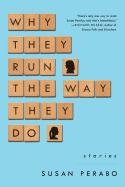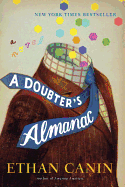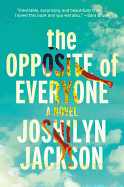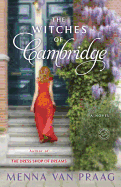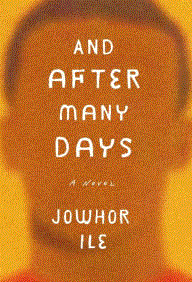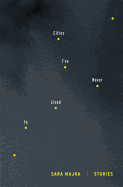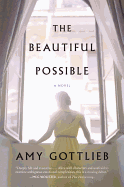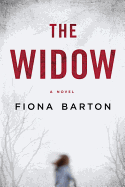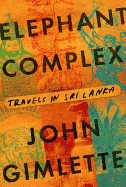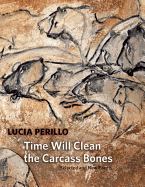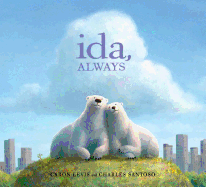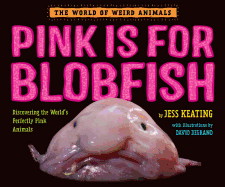.jpg) |
| photo: Monique Carboni |
Theresa Rebeck came New York City to be a writer--and she's succeeded: she's won numerous awards, including a Peabody and an Edgar, and been nominated for a Pulitzer. Rebeck works in several media--she writes plays, screenplays (she created the NBC musical series Smash) and novels. Putnam released her novel I'm Glad About You on February 23. Like Rebeck, the novel's protagonist is a Cincinnati native who heads to New York for a career in show business, but as an actress. Alison leaves behind her high school sweetheart, Kyle, who has lofty goals of being a Doctor Without Borders and finds Alison's choice of profession beneath her.
A Midwestern girl, Alison receives rude awakenings in her pursuit of an acting career in New York City. What were you surprised by when you first came to New York and were starting out in the entertainment industry?
Show business has its own set of rules, and so does New York City. There's a kind of culture shock that sets in. The rules are idiosyncratic and a little rough in both environments, and you're constantly being told you have to "suck it up," because "if you can't stand the heat, you need to get out of the kitchen"--all sorts of idioms about having a thick skin. Of course, artists don't have thick skins at all. So I think Alison's early anxiety and depression is fairly common in her world.
Now that you're a veteran in the industry, how have your feelings changed toward those elements that used to surprise you?
I guess my feelings are a little more jaded. When things that used to shock me show up again and again--and they do--of course you develop a sense of "seen that, been there." I can still get disappointed by people behaving poorly. The psychological journey is definitely complicated over time. You have to learn how to dust your heart off.
How have you learned to do that?
Wow. It is not easy to do. You have to acknowledge the depth of your disappointment and then somehow absorb that into your whole self, and then stand up again and acknowledge you're a slightly different person now. I think you really have to constantly remind yourself to have compassion--toward others, certainly, but also toward yourself. Because the important thing, over time, is that you keep your curiosity and your love intact. Show business can be really hard on your heart and you don't want to get bitter. That's the end of everything.
I do things like read books or go to art museums. I read the Tao Te Ching. This is one of my favorite lines: "Do you honestly think you can improve the universe? I do not think it can be done." That doesn't mean, to me, that we shouldn't be passionate about justice and beauty and storytelling. I think the universe contains all that. But it does speak to an acceptance that helps me dust off my heart.
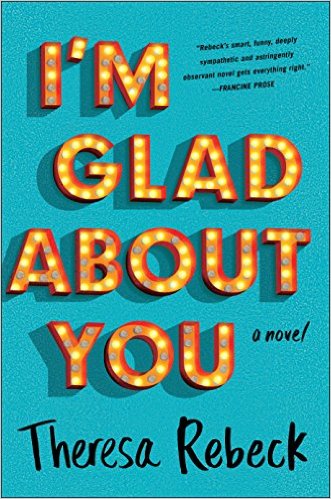 Alison and Kyle begin with big dreams but have to compromise a lot along the way. Have you had to make compromises in your career?
Alison and Kyle begin with big dreams but have to compromise a lot along the way. Have you had to make compromises in your career?
One of the things you really have to learn is how to keep your mouth shut, which is hard for a storyteller. But there are a lot of hierarchies in show business. There's a complex and nuanced and kind of stupid power structure in place and a lot of people are more interested in that than anything. Sometimes you get stuck in a place where your choice seems to be getting noted to death or getting fired.
In the real world, a career in the arts is often considered frivolous, and arts programs are disappearing from schools. Having forged a successful career in the industry, what can you tell those interested in a similar path?
I think people should take the arts much more seriously. We all come out of the womb telling stories and drawing pictures and making music. Even playing dress-up is a form of art. I have no idea how the American culture convinced itself that the arts are dismissible in any way. There are so many studies that prove if war destroys the human spirit, it's the arts that renew it.
I think the idea that we are just here on this planet to make money is a ridiculous misunderstanding. So I don't know why people find the arts something to discourage. I think you may as well discourage people to breathe. Having said that, I do think we are in a very confused time, and people should celebrate arts education and stop acting like the arts are something we can do without. They are absolutely essential.
How does writing a novel differ from writing a play or script? Which medium is most challenging for you?
Writing a novel takes much more time; it is just more complex in every way. I think the simple reason for that is that [in theater] you're in community with a lot of people who are sharing in the task of telling the story. You have your actors and your designers and the producer and the director. Everyone carries a piece of the storytelling task. The playwright more or less provides the spark of inspiration and the sound of the words, but there are so many other people who provide the dimensionality of the thing itself.
In fiction, the writer is creating absolutely everything. Of course, you hopefully have a good editor to stand by your side and talk you off the ledge when you feel your nerve failing. But largely when writing a novel you are everything--every word, every place, every character, every move. It is an art form that fulfills itself.
The late Alan Rickman's last Broadway role was in your play Seminar. What was it like to work with him?
Alan was a consummate artist and a brilliant man and a truly kind and generous friend. He held himself to high standards and he held us all there with him. It is a terrible loss. I'm glad to have him in my head, expecting things from me. It was certainly an unparalleled privilege to know him and work with him.
What are you working on now?
I'm directing a play in a hotel room of all places. I'm also prepping a movie that shoots in April and May. I do have another novel in my head, which I'm anxious to start writing, but for the next few months it will have to wait. --Elyse Dinh-McCrillis, blogger at Pop Culture Nerd
Theresa Rebeck: Passionate About Storytelling

 "There's an extraordinary section about a schizophrenic gal whose Bel-Air shrink, Judd Marmor (who I tried to scam when I was in my 20s--another story), hired a roundelay of young men, including artist Ed Moses, to chaperone her at the family hovel on the Pacific Coast Highway. Like any native, I've worshipped at the sacred, scary Church of PCH all my life; if you're from this city, odds are you've had childhood friends who died on that highway (my middle school crush, Lewis Snyder) or known folks who've been crippled while crossing it (Ben Vereen). If you're of a certain age, you bring as much to this book as it brings to you. You can be younger too, and adopt a virtual, collective unconscious mythos-nostalgia--to wit, Lana Del Rey's mystic, soft Santa Ana obsession with Bel-Air, Malibu, Wilshire Boulevard.
"There's an extraordinary section about a schizophrenic gal whose Bel-Air shrink, Judd Marmor (who I tried to scam when I was in my 20s--another story), hired a roundelay of young men, including artist Ed Moses, to chaperone her at the family hovel on the Pacific Coast Highway. Like any native, I've worshipped at the sacred, scary Church of PCH all my life; if you're from this city, odds are you've had childhood friends who died on that highway (my middle school crush, Lewis Snyder) or known folks who've been crippled while crossing it (Ben Vereen). If you're of a certain age, you bring as much to this book as it brings to you. You can be younger too, and adopt a virtual, collective unconscious mythos-nostalgia--to wit, Lana Del Rey's mystic, soft Santa Ana obsession with Bel-Air, Malibu, Wilshire Boulevard.


.jpg)
 Alison and Kyle begin with big dreams but have to compromise a lot along the way. Have you had to make compromises in your career?
Alison and Kyle begin with big dreams but have to compromise a lot along the way. Have you had to make compromises in your career? Despite its place in the pantheon of world literature, shockingly few people have actually read Leo Tolstoy's epic War and Peace. That is, until the BBC's new miniseries adaptation, in which Paul Dano, James Norton and Lily James play Russian aristocrats grappling with Napoleon's invasion,
Despite its place in the pantheon of world literature, shockingly few people have actually read Leo Tolstoy's epic War and Peace. That is, until the BBC's new miniseries adaptation, in which Paul Dano, James Norton and Lily James play Russian aristocrats grappling with Napoleon's invasion, 